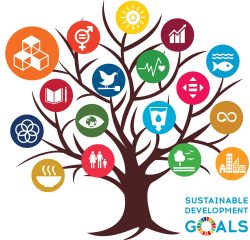Shared Value and Social Impact
The term Social Impact at times can be confusing and the interpretation often depends on context. Social Impact was initially aligned in the business community with our Corporate Social Responsibility (CSR) and Philanthropy and that all formed part of Corporate Social Investment (CSI).

Generating social impact was never part of our profit and loss and at times it was more about PR moments for companies and trying to building a reputation of making a difference and doing good while doing good business . Prof. Mark Kramer from Harvard Business School who is one of founders of the Shared Value Initiative often reflects on how large global organisations had established foundations focused on CSR, but their activities, initiatives and strategies did not interact with or materially affect the core business. It was during this period that the Shared Value Business Management concept was born as created by Prof. Michael Porter and Prof. Mark Kramer.
Social Impact is viewed as the impact of business operations both internally and externally across its entire stakeholder and supply chain base. It encompasses being socially responsible and ethical and consciously addressing how our business performance and operations impact the communities in which we operate.
That brings us to the interlinkage between social impact and shared value. The definition of Shared value as defined by Michael and Mark more than 10 years ago is as follows:
“Policies and practices that enhances the competitiveness of a company while simultaneously advancing the economic and social conditions in the communities in which it operates”
We all know that social impact is referred to in many different ways and there are many different definitions. In essence social impact is
“The effect on people and communities that happens as a result of an action or inaction, an activity, project, programme or policy.”
Aligning these two definitions demonstrates just how inextricably linked Social Impact and Shared Value are, one cannot be successfully implemented without the other. Shared value illustrates that businesses can address societal issues strategically and profitably which over time creates sustainability. I always find Mark Kramer’s perspectives on shared value insightful and as he has said in the past: “Find the social issue that holds your business back, create an innovative solution that can profitably address the societal issue, and where both business and society can benefit”. If we as business focus intentionally on advancing the economic and social conditions in the communities in which we operate and intentionally create operational strategies that consciously ensure that the effect on the people and the communities in which we operate is positive, then we are indeed creating shared value.
Our impact as an organisation on the society and the environment, needs to be addressed through our core business. If we produce our products profitably but we only use plastic packaging, how can we change that proactively and innovatively so that we minimize our use of plastics, remain efficient in our product design and simultaneously protect the environment?
If we are a mining company that recently was awarded a new mining license, how do we strategically develop our operations to ensure that the community we are working in benefits in the long-term and we consciously contribute to building a sustainable community?
A sustainable business that wants to create social impact needs to consider all business factors within its supply chain and make deliberate efforts in dealing and maintaining relationships with other businesses that are also creating social impact. All these examples and practices are core to creating Shared Value.
Shifting to social impact and shared value is not a short-term fix. It is a long-term journey, creating ethical business practices and policies that not only benefit the company economically but that also benefit the communities in which we operate. A company’s wider network of stakeholders, that is, the general public, its employees and shareholders among other groups demonstrate a greater interest and scrutiny into what a company stands for and how its values translate into action that benefit society beyond the boardroom and bottom line. Consumers can now use the power of purchase to demonstrate that they want companies to address social impact ad create value for all.
![]()
TIEKIE BARNARD
Founder & CEO




